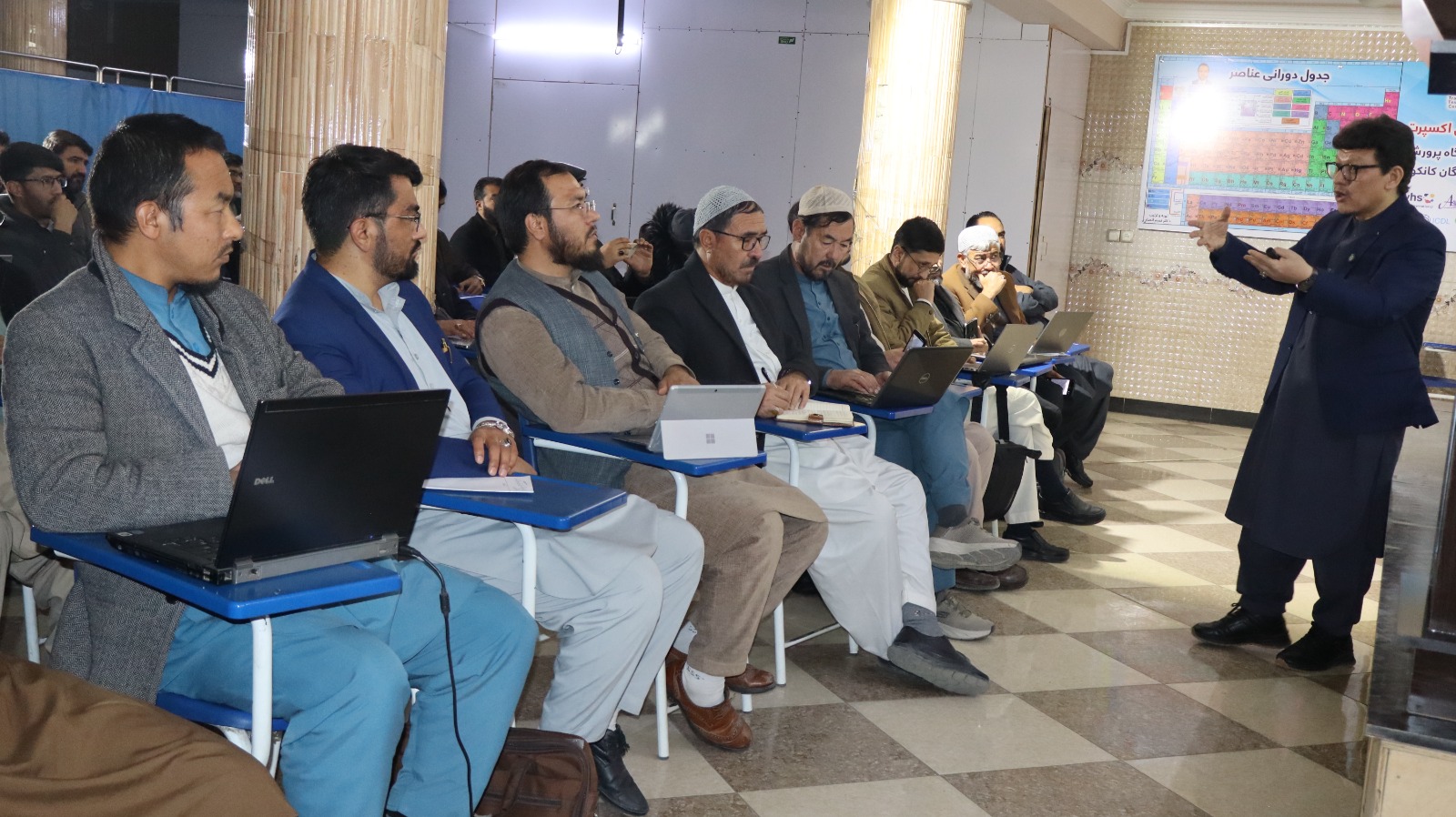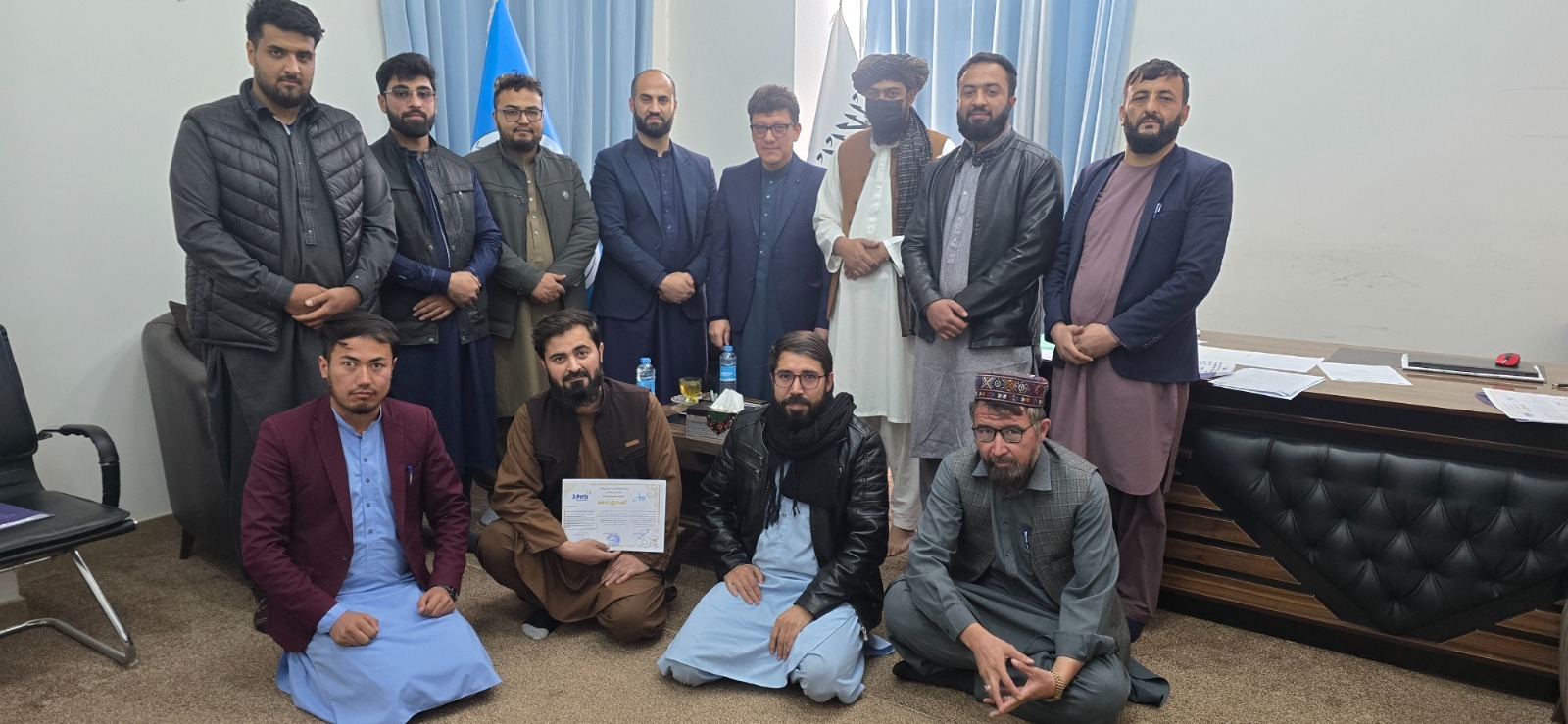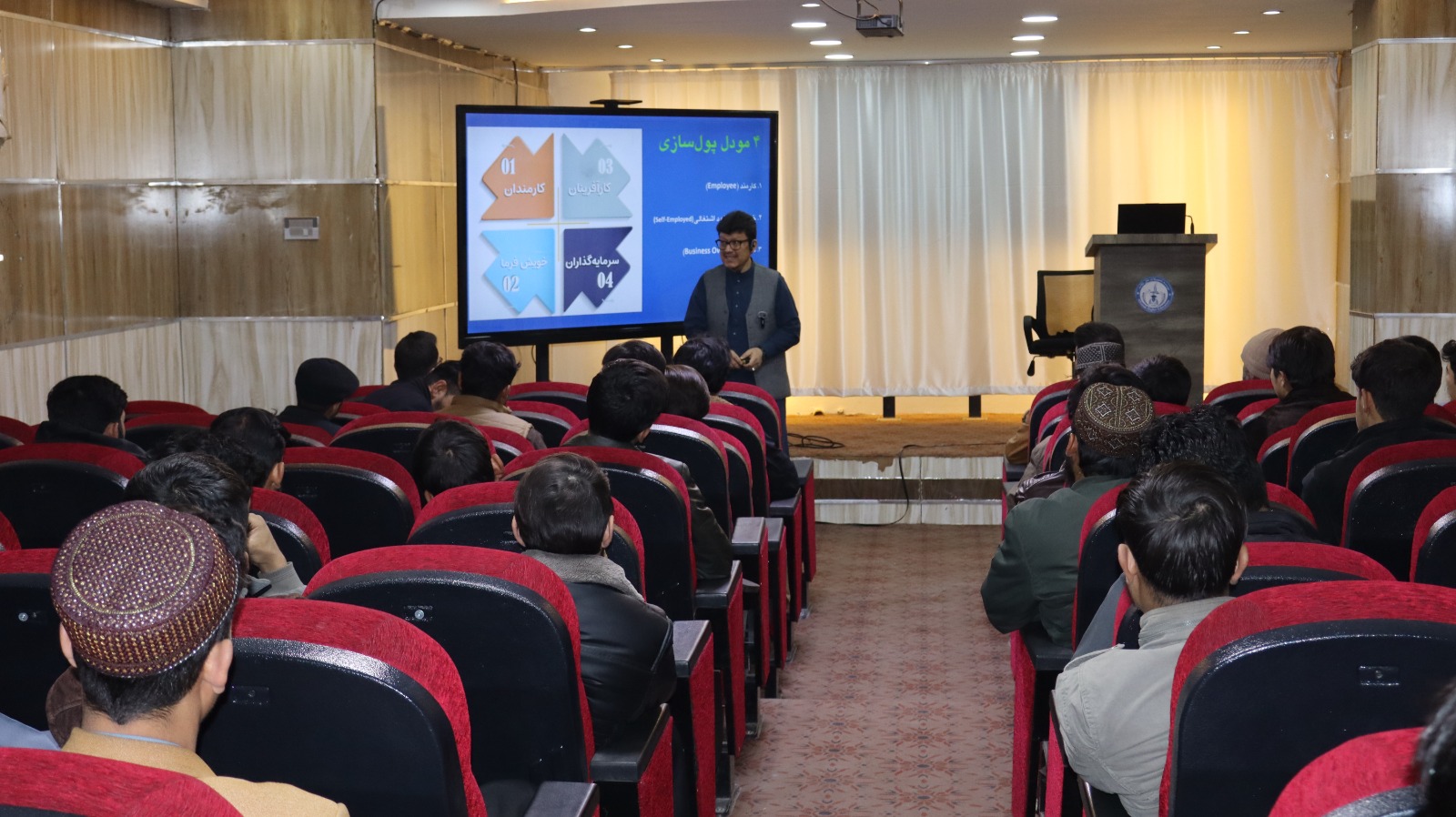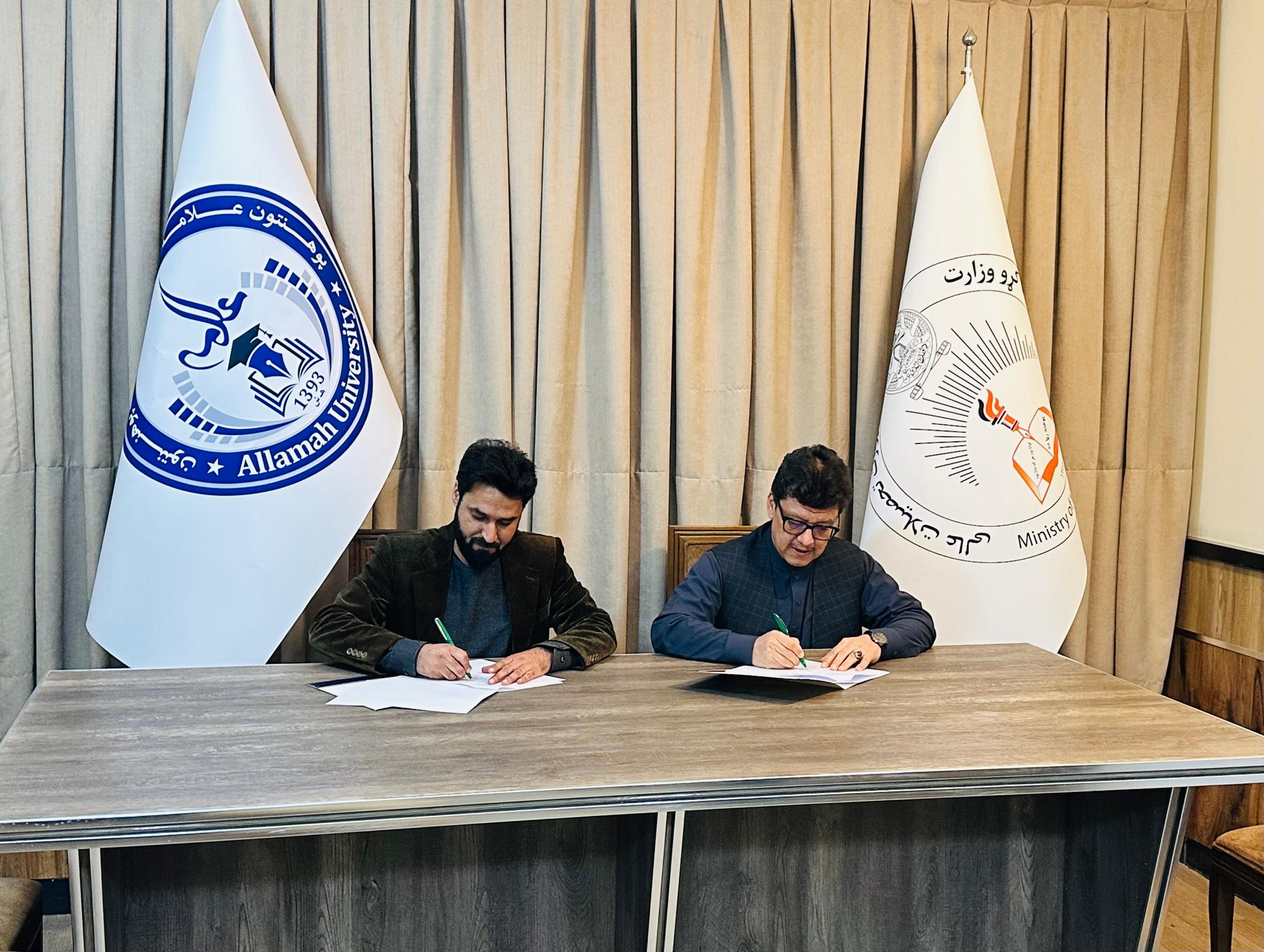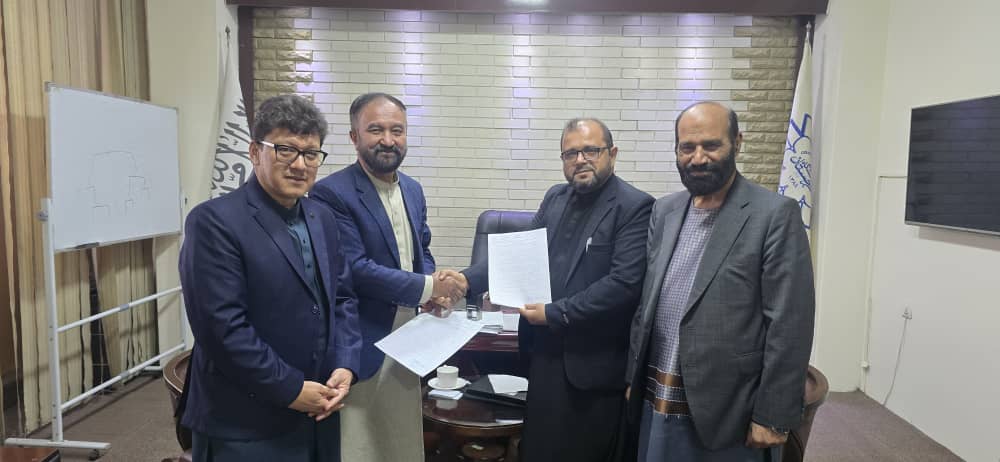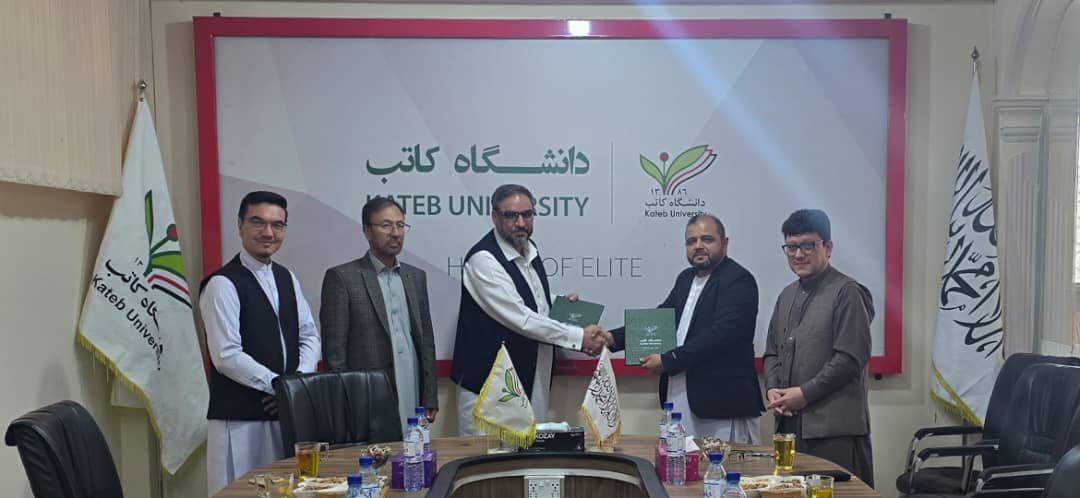
Kabul- City – A Media Conference was held on September 3, by the Afghan National Association for Adult Education (ANAFAE), DVV International and the National Literacy Department.
The focus of the discussion was on the role of mass media to promote literacy education in Afghanistan.
The media conference was the start of the Literacy Education Week, a series of events organized by the LIFE Coordination group, a group of important national literacy education actors. This year literacy education organizations in Afghanistan and worldwide celebrate the 50th anniversary of the International Literacy Day.
Dr. Assadullah Hanif Balkhi, Minister of Education, Dr. Sardar Mohammad Rahimi, Deputy Minister for Literacy Education, Siddiqullah Tawhidi, Head of Nai (Supporting Open Media in Afghanistan) on behalf of the media, other government officials, national and international NGOs, and national media participated in the conference.

Mr. Bashir from ANAFAE called to wipe out illiteracy from the country by supporting each other.
Mr. Bashir Khaliqi the Director of ANAFAE kicked off the discussions and appreciated the media representatives for disseminating programs focusing on literacy education throughout the country. He underlined that literacy education is the key factor to development and progress of the country and illiteracy is one of the main causes of misery in the country. He called to wipe out illiteracy from the country by supporting each other.
Assadullah Hanif Balkhi, Minister of Education congratulated literacy employees, teachers and students, and underlined that literacy is the only way to progress and development. Mr. Balkhi stressed that poverty, misery and war are the causes of illiteracy and to eradicate this phenomenon Afghanistan needs a national consensus.
The Education Minister said that his Ministry is determined to double efforts to combat illiteracy. His Ministry of Education therefore has signed memorandums of understanding with other line ministries and independent departments for cooperation and coordination, to eliminate illiteracy in the country. He expressed his appreciations to ANAFAE for organizing this media conference and for providing literacy education services in the country.
Sardar Mohammad Rahimi, the Deputy Minister for Literacy Education, also thanked ANAFAE and DVV International and other partners for their support to the National Literacy Department. He added that currently around 10 million people that consist (62 %) of the adult population are illiterate in the country which is a main challenge for the national literacy department, while 1% of all ministry budget is allocated to literacy education. He pointed out that literacy education is the start of learning skills and expertise, and contribute to the development and progress of the country.
He informed that the national mobilization plan with 47 ministries, departments and independent agencies and institutions to reduce illiteracy in the country has been finalized. In addition, the Non-Formal Education Management Information System (NFE-MIS) has been established in the National Literacy Department. He appreciated the high quality of the ANAFAE literacy education courses as an exemplary model.
There is room for improvement, Dr. Rahimi mentioned that the old literacy curriculum does not meet all learners’ needs; the new literacy educational curriculum which was developed recently, will be implemented soon.
The Ministry of Education asked public and private media to help them in the combating illiteracy.
Siddiqullah Tawhidi, Chief of Nai (Supporting Open Media in Afghanistan) insisted that illiteracy is a major cause of poverty, violence, insecurity and extremism in the country. He criticized the government and the ministry of education for allocating not enough budgets to eradicate illiteracy, and added that wiping illiteracy needs huge budget. He said, “Unfortunately, the government and authorities didn’t pay attention to rooting out the illiteracy, the basic problem in the country. In the last 15 years no remarkable change occurred in reducing illiteracy in the country. He lauded that media in the country have their commitment to eradicate illiteracy and will support the national literacy department in this way.
n a video message of Afghanistan’s First Lady, Bibi Gul broadcasted at the conference, pointed out that “still nearly 11 million Afghans men and largely women are illiterate which is no longer acceptable in current technological and scientific development era. Ultimately those who are illiterate; can’t read and write are deprived to benefit the modern technological innovations, such as mobile phones, internet and others which are the past means of communications”.
The First Lady of Afghanistan emphasized to reward those individuals and groups and organizations which worked hard to promote literacy education in the country with the “Bibi Gul Award” (named after the First Lady), which is supported by UNESCO in Afghanistan and the National Literacy Department.
An open debate started among participants, two common finding was seen as a major challenge, the lack of cooperation between literacy departments and the directorates of education at provincial level and the low budget to fight illiteracy in the country.
